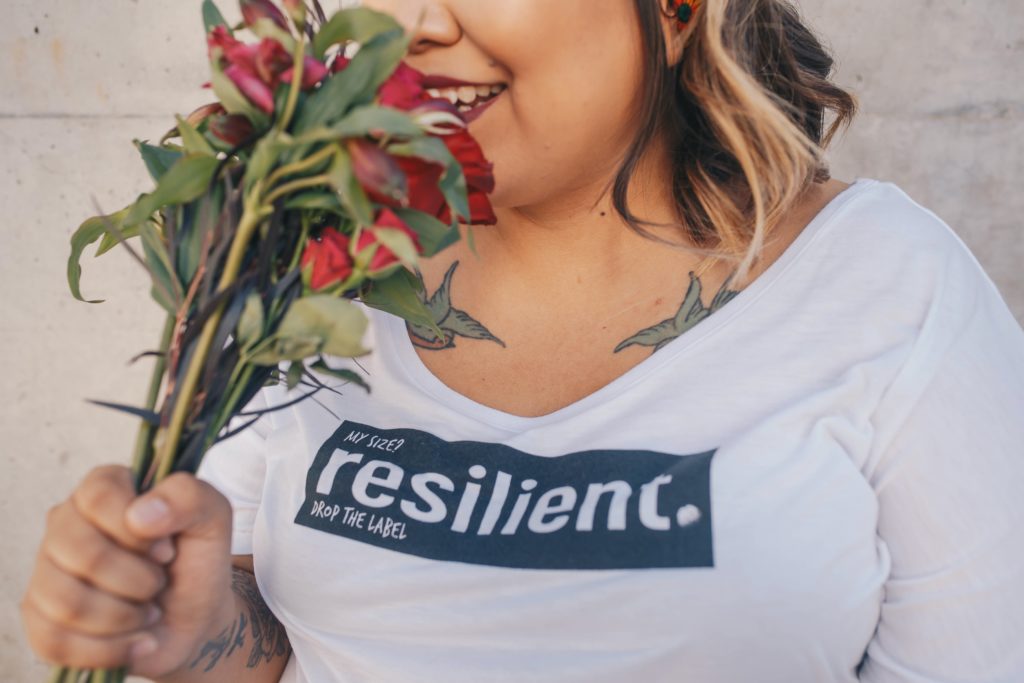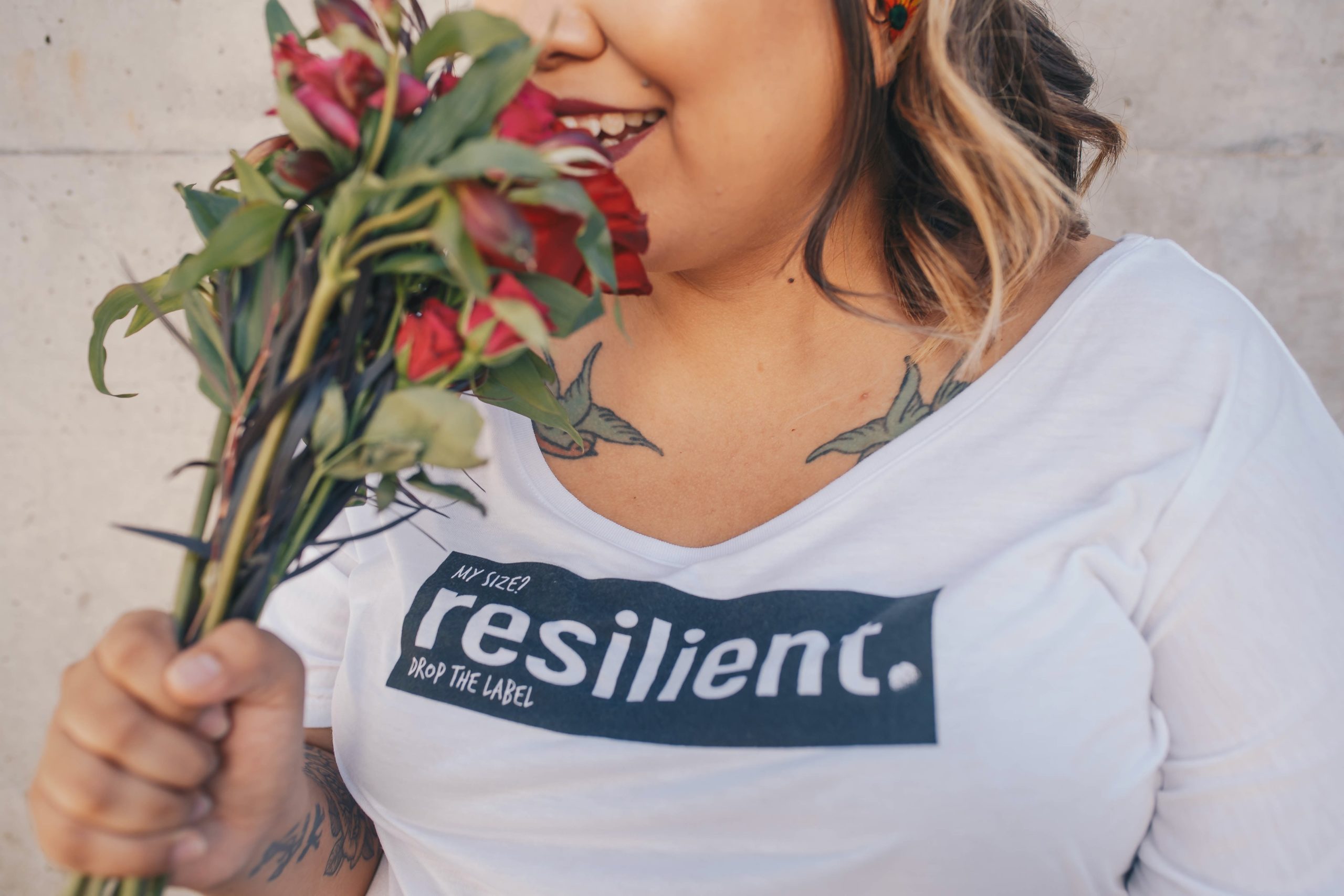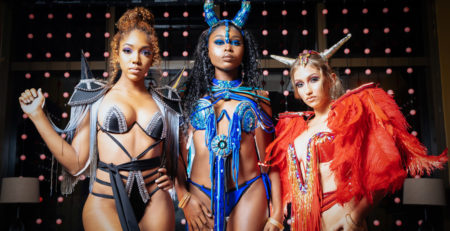Your Body Belongs To You – It’s Time To Feel Like It
It’s the yearly family Christmas lime (in a pre-pandemic time) and when you arrive all of the aunties, uncles and grandparents are waiting for the kisses your parents insist you must give them. You make it to the end and kiss the last auntie then rejoice by making a beeline for the drinks table, when a voice cuts through your mental victory symphony:
“But yuh put on some size?”
And so it begins. A fresh bout of self-loathing.
I often feel as if my body does not belong to me. If it isn’t the aunties or parents, it’s hecklers calling out from cars as I walk to the grocery or comments on social media assessing what I wear, noticing every pound I gain or lose or asking if I’m sick because my eyes look tired and my skin looks dull when all I did was skip the makeup that day. No, I’m not sick – this is just my face!
It leads to a cycle of questioning everything I eat, having a terrible day when I weigh myself and the scale reads higher instead of lower (how dare you scale? I ate a whole vegetable yesterday!) and sucking in my belly every time I pass by a mirror.

At some point the constant obsessing over how we look can get exhausting and one must wonder:
Does this ever end?
The good news is, it can and with some work it does. The first dragon we will slay on our journey to save the princess is “the outside opinion”. The people that can’t help but comment on how we look.
It’s time to set some boundaries. Here are some responses to unsolicited body assessments that can come in useful:
- “I don’t feel good/comfortable when you comment on my weight”
- “I’m happy with the way I look”
If the person persists then double down on your stance or refuse to participate in the conversation. While there may be a fear of causing tension, it’s important to remember you are the one being harmed by the situation and this is a good enough reason to take control to reduce the chances of it happening again.
Now on to saving the princess? I wish. Body image is a complex topic – often it’s not just the external scrutiny on our bodies that make us second guess ourselves, it is the representation of what the ideal body is in the media we consume as well.
While there has been progress made on the body inclusivity front with many celebrities advocating for the appreciation of the body in all shapes and sizes, there is still a lot of work to be done.
In this case, we need to think critically about the media we consume.
Actors, models and even influencers are often pressured within their respective industries to have a specific body type and appearance. Their bodies become their livelihoods. As such the time they spend on exercise and beauty treatments is often considered part of their jobs. Added to this is the fact that the big paychecks that come with these professions allow for personal trainers, nutritionists, the best food and supplements, assistants and nannies to help with everyday tasks and and the list goes on. We haven’t even touched on ace makeup artists, hair stylists, plastic surgeons and Photoshop! Not to mention that because of their large following they tend to be offered many products and services for free or are paid to use them.
There are many layers to the images we see in magazines and the characters we watch in movies. It would help us to keep in mind that the average person should not be expected to look the same because we do not live the same lives as those placed on that pedestal.
It is also frustrating to keep up because body ideals are trends that change and evolve.
Dr. Amelia Serafine, a specialist in Cultural History at San Antonio College, Texas says, “In fact, body ideals throughout history were largely fantasy, though people went to extraordinary lengths to try and meet them. Especially since the 19th century, most of these body ideals were created to exclude, to make people doubt themselves. If history has anything to teach us about the ideal body shape, it’s that it will change tomorrow.”
It must be noted thought, that while we can teach ourselves to de-code what we consume from the outside, what happens on the inside is often not as simple to explain away.
It was in a moment when I was reassuring a friend of all the ways in which I thought she was the best human on Earth during her own moment of self-consciousness that I thought to myself, “I really should take my own advice.”

And so, I realised that we need to be kind to ourselves too.
We all have our own internal voice or mental narrators that we don’t really notice because we have had it our entire lives. Some refer to this as “self-talk”.
Whitney Norris for Counseling Today says, “When I use the term self-talk, I’m referencing that voice in our heads — all the thoughts in our minds that sound like one or both sides of a conversation. The unmistakable reality is that we’re constantly talking to ourselves, regardless of whether we realise it. Much has been written on the topic using various terminology. One of my favorite terms used is inner critic. I appreciate this wording because of its intent to externalise our negative self-talk and help us refrain from mistakenly overidentifying with it.”
Our self-talk governs how we think about ourselves. Often we may have an internal dialogue that sounds more like we are a bully rather than a kind friend and there are several different views on what decides this. Some sources say that it’s the way our parents spoke to us as children. Either way, becoming aware of it and consciously making an effort to reframe the way we speak internally gives us the power rather than leaving that in the hands of its source.
An example of nipping negative self-talk in the bud:
Instead of saying “I never should have eaten that cupcake”, say “I can’t change the past, but I can try to make better choices moving forward”.
It takes a while to form a new habit so it may require some conscious effort to catch our inner mean girl in the act and replace her with a best friend.
If it’s a challenge to speak to yourself kindly in the moment, it may be useful to begin this practice by keeping a journal.
The following prompts can help you get started:
- Today my body helped me accomplish __________
- When I think of my body, my first thought is ______ because_____
- When I think of my body, the first thought I want to think is ________ because_____

It helps to acknowledge and question our inner criticisms so that we can understand where they come from and begin the healing process.
Now in no way should these tools be mistaken as a deterrent from being ambitious and achieving goals.
It’s about making improvements in a healthy way.
Mervyn Reid-Nelson, a body confidence photographer, said for an article on Forbes.com, “Yes, make improvements, of course! But these improvements shouldn’t ideally be founded upon self-resentment or because you want ‘Sarah’s’ thighs. I hate to be the bearer of bad news (or reality) but there is always a possibility you won’t make it…and then, of course, there’s a fear that you’ll fall further back down the well of inadequacy. The goal is self-acceptance first and then improvement. Ask yourself: is it really for health purposes and self-acceptance or do I want a great bikini shot for the ‘Gram’? If you’re not making changes for the right reasons reaching these goals can also bring about a deeper sense of unfulfillment and inadequacy. Realising you’ve climbed the wrong mountain is heartbreaking for anyone.”
Wanting a “better” body and working towards it is not going to cancel out all of the work you are putting in to improve your body image – it is the reason behind wanting a better body that may do that. To achieve body goals without doing more harm than good, always ask yourself why the goal is important to you before you commit to achieving it. If the reason sounds like, “To get Auntie to compliment me at the next family gathering” then you would be actively participating in the same cycle you are trying to free yourself from. A healthy reason can sound like, “I want to exercise every day to try to reduce stress” or “I want to do my makeup every day because taking that time to do something for myself brings me joy”.
Our bodies belong to us and by setting boundaries, assessing the media that we consume, playing an active role in our self-talk or setting healthy goals, we can be well on our way to feeling like it.
Works Cited
12, Dr Peggy DefazIo February, and Jonas Daniel July 5. “Some Thoughts on Thoughts: The Inner Critic and Self-Talk.” Counseling Today, 6 Dec. 2018, ct.counseling.org/2018/12/some-thoughts-on-thoughts-the-inner-critic-and-self-talk/.
Cole, Bianca Miller. “Body Confidence, Body Positivity and Self Esteem – the Complicated Truth behind Instagram and Body Image Woes.” Forbes, Forbes Magazine, 29 June 2021, www.forbes.com/sites/biancamillercole/2020/06/04/body-confidence-body-positivity-and-self-esteemthe-complicated-truth-behind-instagram-and-body-image-woes/?sh=60ea27706a66.
“Understanding Ideal Body Shapes through History.” PureGym, 29 Jan. 2020, www.puregym.com/blog/body-shapes/.










Leave a Reply
You must be logged in to post a comment.